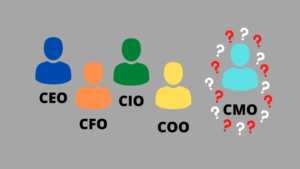
Oftentimes when companies are doing well, they look to cut “unnecessary” expenses so that their success can be amplified as profit margins increase. In recent years, it has been a trend for marketing departments to be the subject of these cuts. However, what often results from the decreased marketing budgets, is a gradual downward trend in sales that then results in the company ultimately coming back to marketing to fix. While this cyclical trend is frustrating for marketers, it also shows the value and importance that marketing plays in sustaining brand engagement and sales.
A prominent example of this recently occurred as global brand McDonald’s brought back the Chief Marketing officer role to the C-suite just a year after they removed it. McDonald’s had previously decided to remove the CMO position when their then-current CMO announced her intent to leave and the company instead of filling the position decided to split it into two senior vice president level positions. This was a common trend seen among large corporations last year as companies like Johnson & Johnson and Lyft enacted similar shifts in their marketing structure as well.
This trend to scrap global CMO roles is occurring at a time where marketing departments are letting themselves be relegated to the world of promotions, forcing them to forfeit the soul of marketing which is engagement, logistics, analytics, strategy, and technology. By allowing ourselves to be seen only as promoters, we are making our departments seem necessary only when business needs to be picked up, rationalizing boards’ decisions to cut CMO roles when business is going well.
However, by the recent decline in McDonald’s business that prompted the reentrance of the global CMO role into their C-suite, it is clearly seen that marketing departments are needed to help maintain steady brand engagement and sales. As marketing departments, we need to be more vocal about our strategies, analytics, and logistics that we put in place so that the company boards can see the value and importance of our departments.
In The Social Media Magnet courseware and practicum, we teach our students sustainable strategies, not just platform tactics so that they can understand the role strategy plays in driving engagement. If you are a professor interested in gaining a deeper understanding of what Social Media Magnet is and what we teach, visit our Professor Overview page. If you are interested in taking the next step and exploring our curriculum for yourself before committing, register for our free Professor Preview. Now is the time to teach the next generation of marketers the importance and necessity of analytics, strategy, and logistics in maintaining the need for our departments.
